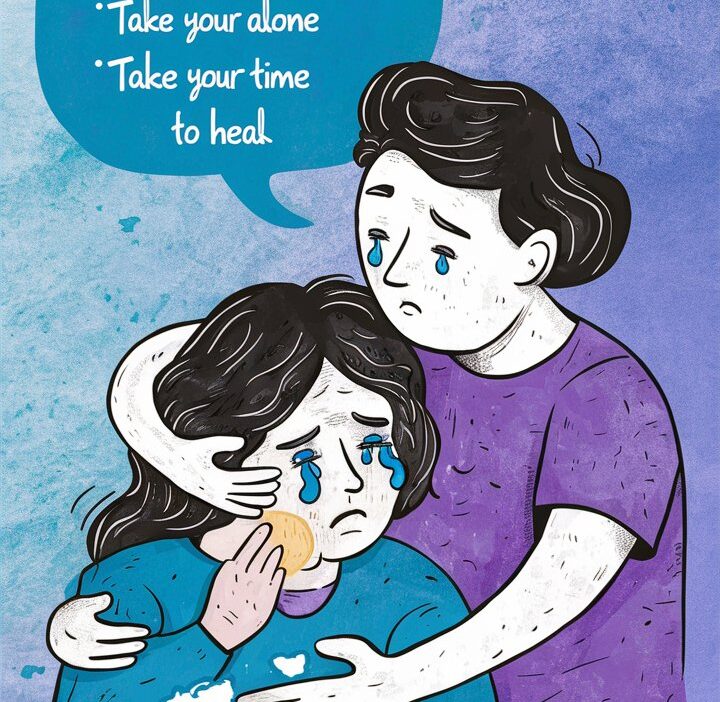Losing someone special is heart-wrenching, and finding the right words to comfort a grieving friend or family member can feel impossible. You want to show you care, but saying “sorry for your loss” might feel too generic or distant. If you’re searching for what to say instead of sorry for your loss, you’re not alone.
Many people struggle to express sympathy in a way that feels personal and meaningful. This article shares thoughtful alternatives to help you offer genuine support during tough times.
From heartfelt phrases to practical tips, we’ll guide you through ways to connect with someone who’s grieving, making sure your words bring comfort and show you truly care.
Why “Sorry for Your Loss” Feels Overused
The phrase “sorry for your loss” is common, but it can feel impersonal or automatic. It’s often said because it’s quick and safe, yet it may not show the depth of your feelings. When someone is grieving, they often crave words that feel warm and specific.
Scenario: Imagine your coworker lost their parent. At the office, you say, “Sorry for your loss,” but they nod politely and move on. The moment feels flat.
What to Say Instead: “I’m here for you. I know how much your dad meant to you.”
What Not to Say: “He’s in a better place.” (This assumes beliefs they may not share.)
This approach acknowledges their unique bond and opens the door for connection.
Acknowledge Their Pain with Empathy
Grief is deeply personal, and showing empathy can make a big difference. Acknowledge their pain with words that validate their feelings. This shows you see their hurt and care about their experience.
Scenario: Your friend lost their sibling unexpectedly. You want to comfort them but don’t know how to start.
What to Say Instead: “I can’t imagine how hard this is. I’m here to listen if you want to talk.”
What Not to Say: “You’ll feel better soon.” (This dismisses their current pain.)
By focusing on their emotions, you create a safe space for them to share. Keep it simple and let them guide the conversation. Your presence matters more than perfect words.
Share a Memory of the Loved One
Sharing a positive memory about the person who passed can bring comfort and show you valued their life. It makes the conversation personal and helps keep their memory alive.
Scenario: Your neighbor lost their grandmother. You remember her warm smile when she waved from her porch.
What to Say Instead: “I’ll always remember your grandma’s kind smile. She made everyone feel so welcome.”
What Not to Say: “At least she lived a long life.” (This can feel like it minimizes their grief.)
This approach honors the loved one and invites your neighbor to share their own memories, creating a meaningful moment of connection.
Offer Specific Support
Grief can be overwhelming, and vague offers like “Let me know if you need anything” often go unanswered. Instead, offer specific help that shows you’re ready to step in.
Scenario: Your cousin is grieving their partner and struggling with daily tasks.
What to Say Instead: “Can I bring you dinner this week? I’d love to help however I can.”
What Not to Say: “Call me if you need anything.” (This puts the burden on them to ask.)
Specific offers, like dropping off a meal or helping with errands, show you’re serious about supporting them through their loss.
Express Ongoing Care
Grief doesn’t end after the funeral, and checking in later shows you’re still thinking of them. Expressing ongoing care can help them feel less alone in their journey.
Scenario: A month after your friend lost their pet, you notice they seem quiet.
What to Say Instead: “I’ve been thinking of you and [pet’s name]. How are you doing these days?”
What Not to Say: “It was just a pet.” (This invalidates their grief.)
Following up shows your support isn’t just a one-time gesture. It reinforces that you’re there for the long haul.
Use Simple, Heartfelt Words
Sometimes, the simplest words carry the most weight. A heartfelt message doesn’t need to be long or fancy—it just needs to come from the heart.
Scenario: You’re writing a card for a family member who lost their spouse.
What to Say Instead: “My heart is with you. I’m holding you close in my thoughts.”
What Not to Say: “Everything happens for a reason.” (This can feel dismissive or hurtful.)
Simple words show your love and support without overwhelming someone who’s grieving. Keep it genuine, and they’ll feel your care.
Final Thoughts
Finding what to say instead of sorry for your loss is about showing genuine care and connection. Whether you share a memory, offer specific help, or simply listen, your words can bring comfort to someone grieving.
The key is to speak from the heart, acknowledge their pain, and let them know they’re not alone.
Next time you’re unsure what to say, try one of these thoughtful alternatives. Your support can make a big difference in their healing journey.




